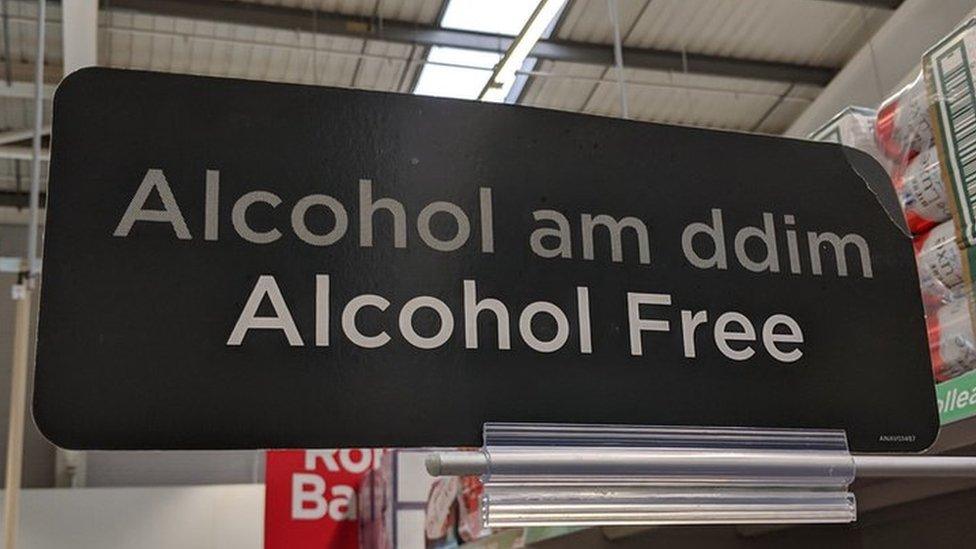Road signs: Man designs new Welsh alphabet
- Published
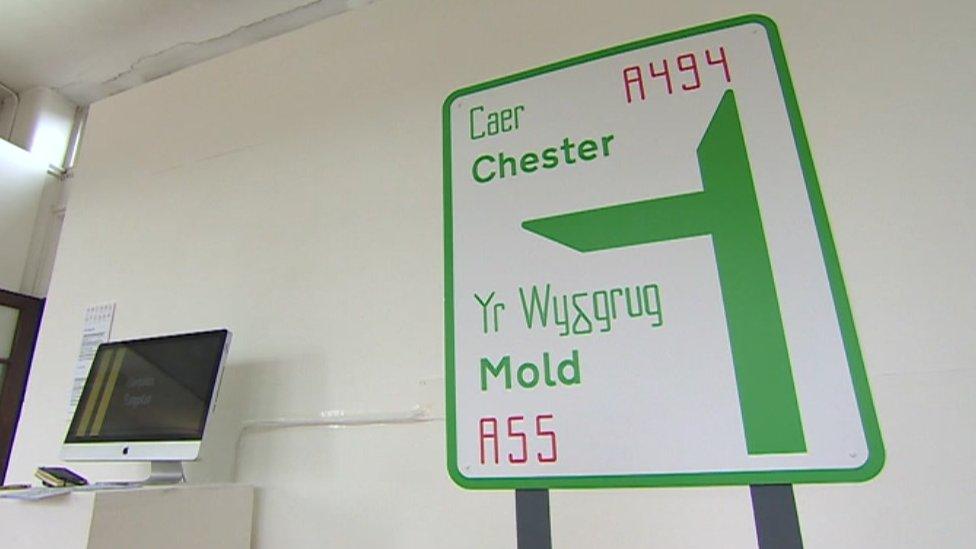
The dd in Yr Wyddgrug, or Mold, would get a new, single character
A man has designed new letters for the Welsh alphabet and has proposed they are used on road signs in a bid to strengthen Welsh national identity.
Design student Carl Edwards, from Mold, Flintshire, has created eight new characters to represent those with double letters, such as "ll" or "dd".
Mr Edwards said the sounds of double letters can create confusion and wants to modernise the language.
He said there was "no identity that's clear to everyone" in Wales.
Mr Edwards, who is studying for an MA in design practice at Glyndwr University, Wrexham, said he got the idea after trips to Athens and Warsaw as part of a European cultural exchange project.
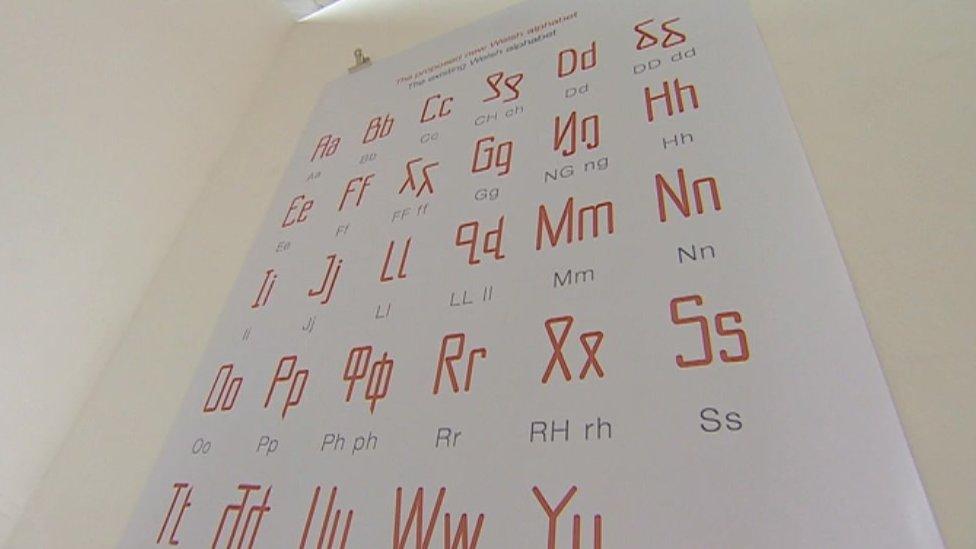
The Welsh alphabet has 29 distinct sounds, but does not contain a k, q, x or z
Welsh letters
Ch - A non-English sound as in Scottish "ch" in "loch"
Dd - "Th" as voiced in "the"
Ff - An "f" sound as in "off"
Ng - Like the end of the word "sing" or "song"
Ll - Not an English sound. Can be made by attempting to say the letters "h" and "l" at the same time
Ph - As in "graph"
Rh - Does not appear in English, but the difference between "r" and "rh" is similar to the difference between "w" and "wh" in English
Th - As in "thin"
"I noticed that every time you go to another country, apart from the obvious language difference, the first thing that hits you is the signage - airports, seaports, any type of road transport," he said.
"I spoke with some other designers - as well as linguists, economists and educationalists - and I realised that in Wales there's no identity that's clear to everyone when you come here and that started me thinking."
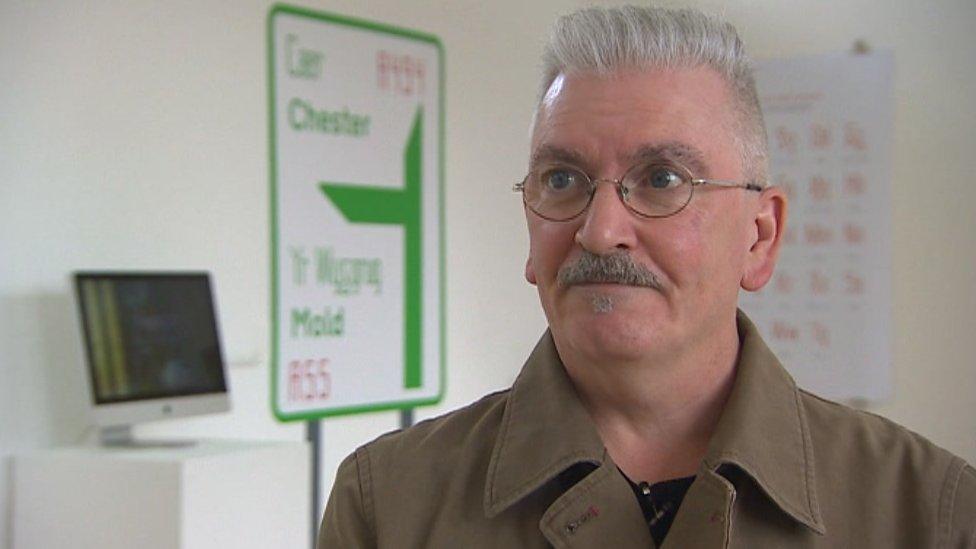
Carl Edwards took inspiration from the Welsh Bardic alphabet
Inspiration for the characters came mainly from the work of Edward Williams, better known as Iolo Morgannwg - a 19th Century antiquarian and poet who devised Coelbren y Beirdd, or the Welsh bardic alphabet.
Karen Held from the university said: "Carl's project is the product of tireless research blended with creativity, exploring ways of expressing Wales' cultural and national identity."
Philip Gomm from the motoring research organisation the RAC Foundation said: "Day and night, whatever the weather and whatever the speed they are passed at, signs ideally need to be intelligible first time round no matter which language the driver uses: English, Welsh or possibly something completely different."
- Published25 January 2019
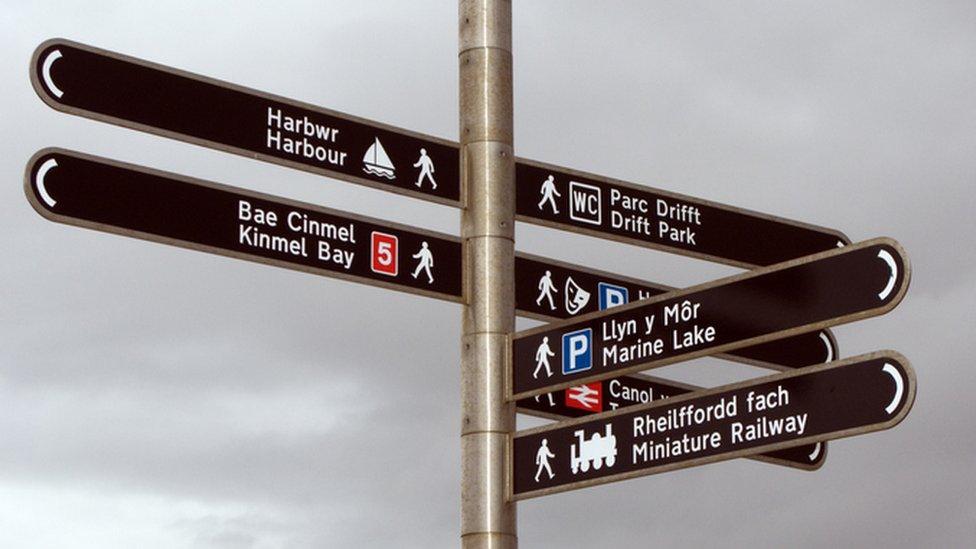
- Published28 May 2018
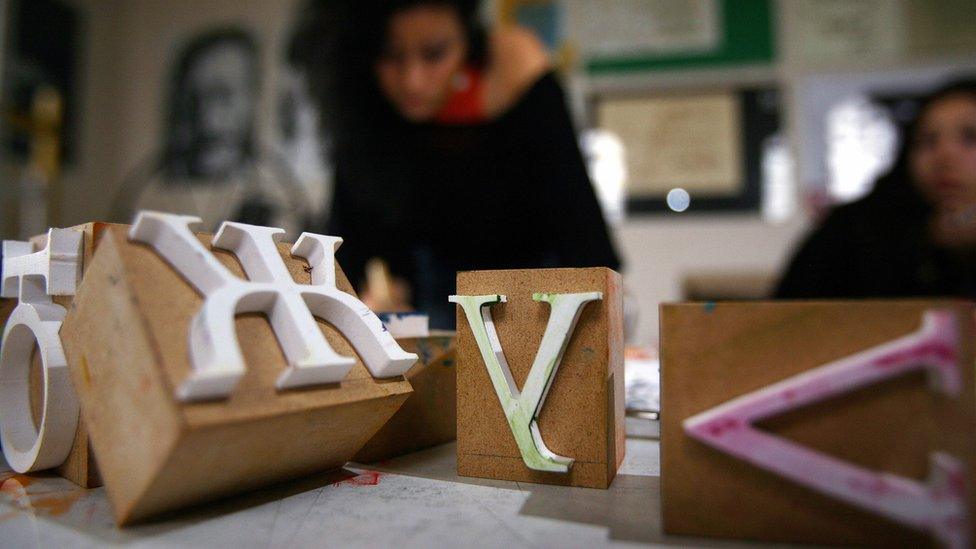
- Published2 January 2019

- Published17 April 2019
